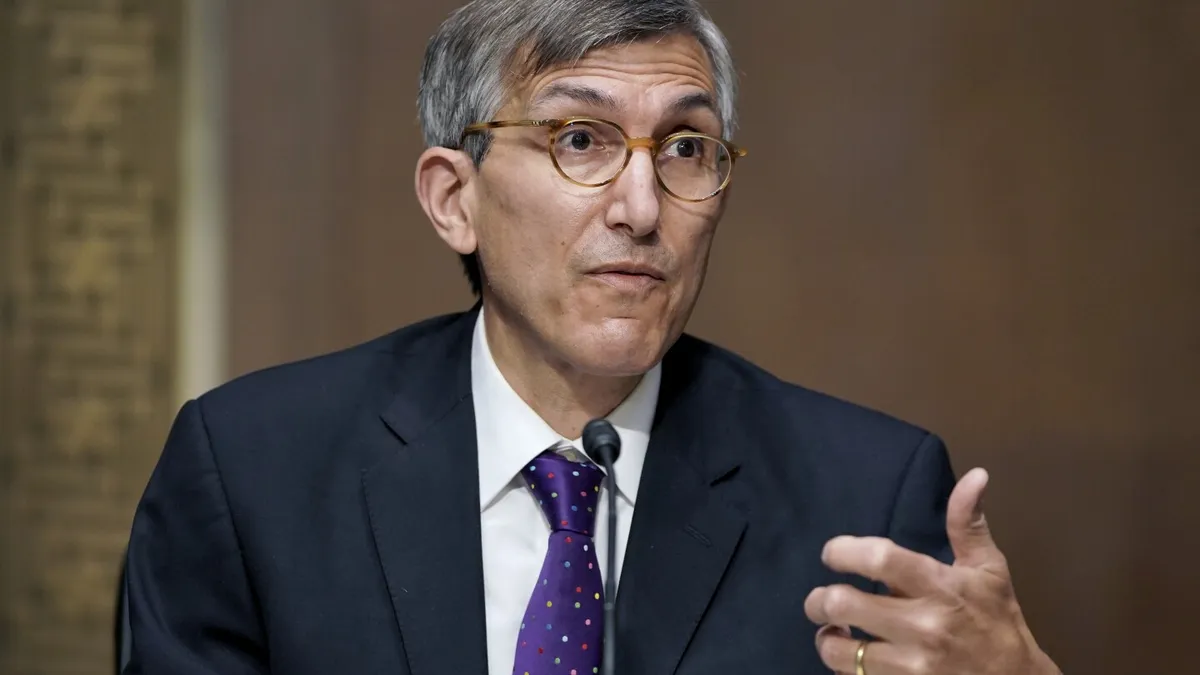
In a significant development in the realm of public health, Dr. Peter Marks, the top vaccine official at the Food and Drug Administration (FDA), has announced his resignation. This decision comes in the wake of his criticism directed towards the nation’s leading health official, Robert F. Kennedy Jr., for allowing “misinformation and lies” to influence his stance on the safety of vaccinations.
Dr. Marks communicated his resignation in a letter addressed to Acting FDA Commissioner Sara Brenner on Friday, stating that he would retire from his position as the director of the Center for Biologics Evaluation and Research by April 5. In this letter, which was obtained by The Associated Press, Marks expressed his willingness to engage in dialogue to address concerns regarding vaccination safety, as voiced by Kennedy. However, he concluded that such discussions were unfeasible.
Marks articulated his disillusionment, stating, “It has become clear that truth and transparency are not desired by the Secretary, but rather he wishes subservient confirmation of his misinformation and lies.” This statement reflects growing tensions concerning public health messaging amidst a backdrop of rising anti-vaccine misinformation.
Robert F. Kennedy Jr. has a well-documented history of promoting anti-vaccine narratives. Yet, during his Senate confirmation hearings, he appeared to assure the committee that he would uphold existing vaccine recommendations. Despite this, since assuming the role of Secretary of Health and Human Services, Kennedy has committed to investigating the safety of childhood vaccinations, despite overwhelming scientific evidence demonstrating their safety and efficacy.
Dr. Marks played a pivotal role during the COVID-19 pandemic, overseeing the rapid review and approval processes for vaccines and treatments. He is particularly noted for coining the term “Operation Warp Speed,” a governmental initiative aimed at expediting vaccine development, which significantly reduced the time typically required for vaccine approval.
The implications of Marks' resignation have sparked concern within the medical community. Dr. Paul Offit, a vaccine expert from the Children’s Hospital of Philadelphia, criticized the circumstances surrounding Marks' departure as a troubling outcome of Kennedy's anti-vaccine agenda. Offit remarked, “RFK Jr.’s firing of Peter Marks because he wouldn’t bend a knee to his misinformation campaign now allows the fox to guard the hen house. It’s a sad day for America’s children.”
Former FDA Commissioner Dr. Robert Califf echoed these sentiments, stating that the issues raised in Marks' resignation letter are alarming for anyone who values evidence-based policies in public health. He emphasized the necessity for enhanced communication across academia, industry, and government to reinforce the importance of scientific integrity.
The resignation comes at a time when the U.S. Department of Health and Human Services (HHS) is reportedly planning to lay off approximately 10,000 workers and dismantle several agencies responsible for managing billions of dollars in funding for addiction services and community health centers. Kennedy criticized the HHS as an inefficient “sprawling bureaucracy,” attributing the decline in American health to its workforce of 82,000 employees.
This event is part of a larger trend of instability within the health agency, which has recently faced significant layoffs, retirements, and a chaotic return-to-office process, leaving many employees without essential resources. In a related incident, Jim Jones, the FDA’s deputy commissioner for foods, resigned due to what he termed the “indiscriminate firing” of nearly 90 staff members within his division.
In his resignation letter, Dr. Marks expressed deep concern over the ongoing efforts to propagate misinformation regarding vaccination and its adverse health effects. He cited the “unprecedented assault on scientific truth” as a troubling factor that has negatively impacted public health in the United States. Furthermore, he highlighted the historical benefits of vaccinations, referencing their role in public health dating back to the time of George Washington.
Marks also pointed to the current multistate measles outbreak, which is particularly severe in Texas, as a stark reminder of the dangers posed by vaccine hesitancy. With over 370 reported cases in Texas and New Mexico, this outbreak has now reached Kansas and Ohio, posing a risk of further spread to unvaccinated communities across the nation. Public health experts warn that if the outbreak continues to spread, it could threaten the United States’ achievement of eliminating local transmission of this preventable disease.
As the landscape of public health continues to evolve amid these challenges, the implications of Dr. Marks' resignation are yet to be fully realized, prompting urgent discussions around the integrity of health policies and the importance of maintaining trust in scientific evidence.